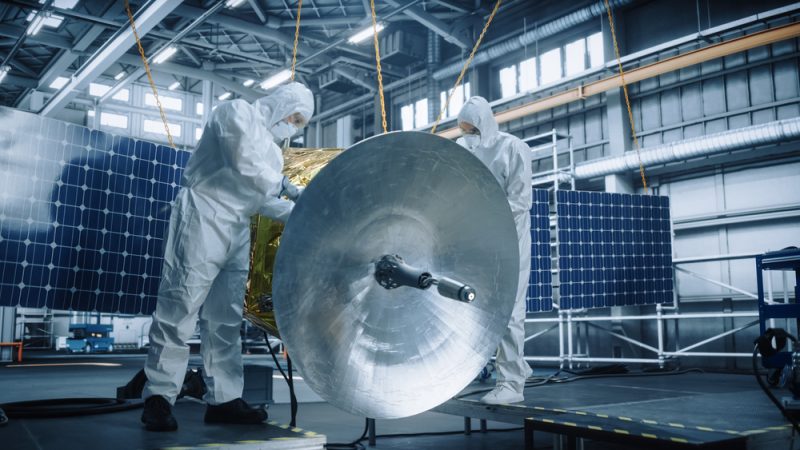European Commission officials revealed key details of the content and shape of the next EU space law, particularly the cybersecurity aspects, at an event in Paris on Wednesday, April 24th.
The European Commission is preparing the European Space Law, scheduled for summer 2024, but its publication date has been postponed twice.
“We need to recognize that space infrastructure is not only extremely important, but critically important,” said Guillaume de la Brosse, head of innovation and new space at the European Commission. He spoke at the Space Industry Cyber Security (CYSAT) event in Paris on Wednesday, April 24th.
In his presentation, de la Brosse said the EU needs “an appropriate regulatory framework that sets common rules and avoids fragmentation.”
Single Market Commissioner Thierry Breton said something very similar during an April meeting with MEPs on the Industry, Research and Energy Committee. The commission will likely be tasked with analyzing the proposed EU space law.
According to various sources contacted by Euractiv, these sentences very likely mean that space law becomes a regulation. The term “law” used by committee staff is often used intentionally to obscure what exactly the bill is.
According to the European Commission, the next European Space Law will focus on three pillars: Avoidance of collision risk due to space debris and sustainability. Calculating and mitigating the impact and resilience of space activities. Mainly related to protection against cyber threats.
cyber security
“The universe is becoming increasingly software-based,” de la Brosse explained on stage.
According to him, the next EU Space Law will therefore focus on cybersecurity by design, strengthening the security level of the space industry's supply chain and applying (cyber)security measures according to the criticality of specific products. It is said that it will happen.
Businesses are required to reduce risk by assessing and evaluating potential events that threaten their infrastructure.
Companies will be required to prevent, detect and protect themselves from cyber incidents, De La Brosse said.
The upcoming EU space law will also provide a framework on how to deal with these incidents. Ultimately, the law will spell out who and how to report cyber incidents, he added.
These requirements are necessary because the latest EU cybersecurity law, the NIS 2 Directive, only partially applies to space personnel, the European Commission's head of department pointed out.
The directive targets telecom operators and the ground sector of the EU's space industry, but does not address the space sector.
sustainability
When it comes to sustainability, “level of ambition” [of the law] It would be quite low,” de la Brosse said, adding that there is currently no methodology to calculate the environmental impact of space activities.
He said a common methodology is needed to calculate an industry's environmental impact before it can be mitigated.
[Edited by Rajnish Singh]




